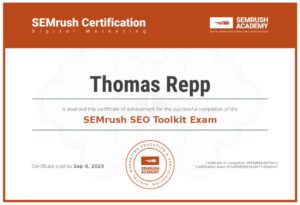 In the realm of business-to-business (B2B) industrial marketing, mid-size companies, with annual sales ranging from $10 million to $1 billion, face unique challenges AND great opportunities. To thrive in this competitive digital landscape, they must adopt a well-defined marketing strategy tailored to their specific needs. In this article, I will explore the best B2B industrial marketing strategy for mid-size companies, focusing on the importance of branding & online visibility as the foundation for future online success.
In the realm of business-to-business (B2B) industrial marketing, mid-size companies, with annual sales ranging from $10 million to $1 billion, face unique challenges AND great opportunities. To thrive in this competitive digital landscape, they must adopt a well-defined marketing strategy tailored to their specific needs. In this article, I will explore the best B2B industrial marketing strategy for mid-size companies, focusing on the importance of branding & online visibility as the foundation for future online success.
The following outline of tasks comes from 25 years of experience in B2B digital marketing as well as tactics validated by research, mostly from the valuable State of Marketing to Engineers Research Report done yearly by GlobalSpec and Trew Marketing. (A leading B2B marketing company in Austin, TX.)
Understanding the Unique Position of B2B Mid-Size Industrials
Before diving into strategy, it's essential to recognize the distinct position of mid-size companies in the B2B industrial sector. Unlike smaller startups, mid-size firms typically have the resources to invest in marketing initiatives but may lack the vast budgets of industry giants. Most importantly they lack the specialized knowledge that it takes to successfully navigate in the recently muddled waters of online marketing. However, these mid-size industrials have two unique advantages all industrial marketers need to be aware of:
- First, they operate in niche markets and often have more flexibility and agility than larger corporations.
- Second, as I have written about before they also have a significant opportunity to own their unique online niches because of the inherited lack of digital know how and lack of online competition within their own industry niches.
With these significant advantages in mind, let's delve into the best marketing strategies for mid-size B2B industrial players.
The Power of Branding in B2B Industrial Marketing
Branding is a critical element in B2B marketing that mid-size companies should not underestimate. A strong brand identity helps establish trust, recognition, and differentiation in a crowded marketplace. Here's why branding is crucial:
Trust and Credibility: In B2B industries, trust and credibility are paramount. A well-defined brand with a reputable image can instill confidence in potential clients. Mid-size companies can leverage branding to communicate their reliability, expertise, and commitment to quality.
Differentiation: Branding allows mid-size companies to differentiate themselves from large and small competitors. Effective branding helps convey a unique value proposition, making it easier for potential clients to understand what sets the company apart. As our frirend Seth Godin says, "Make sure your company is a purple cow in a herd of brown cows."
Long-Term Growth: A strong brand has the power to attract and retain customers over the long term. It can also facilitate expansion into new markets and product lines, fueling sustainable growth.
Consistency: Consistency in branding, from messaging to visual elements, helps build a cohesive and memorable image. This consistency reassures clients and partners about the company's stability and professionalism.
Tailored Content Marketing
Content marketing is a versatile tool for B2B industrial companies, and mid-size firms can make the most of it. By creating and sharing valuable, industry-specific content, companies can position themselves as thought leaders and attract potential clients. Here are some content marketing strategies:
Start with Blogging: Regularly publishing informative blog posts can demonstrate industry expertise and address common pain points. Mid-size companies should focus on providing solutions, not just selling products or services. Back in 2013 I wrote about an industrial supplier that literally owns their market because of their blogging strategy. They are still blogging today with massive success.
Whitepapers and Case Studies: In-depth whitepapers and case studies can showcase the company's accomplishments and highlight its effectiveness in solving real-world problems. These pieces help build trust and credibility.
Webinars and Seminars: Hosting webinars and seminars allows mid-size companies to engage with their target audience directly. This format provides an opportunity to share knowledge, answer questions, and establish a personal connection.
Email Marketing: Email is a powerful tool for nurturing leads. Mid-size companies can use email campaigns to deliver relevant content to their prospects, keeping their brand top-of-mind.
Great stuff, right!
The challenge for these mid-size industrials is the lack of experience when it comes to creating great content your industrial audience loves. This a big cultural leap for all most every B2B … but will be worth it in the long view. If fact, I like to say your marketing folks need to become “publishers”. Further, it makes sense to upgrade your industrial brand as a “Dream”, as I wrote about in 2016. I firmly believe all the “boring” industrial products can be rebranded to capture your buyer’s desire for a better outcome … a “Dream!
Leveraging Social Media
Social media is a vital component of any modern marketing strategy. Mid-size B2B industrial companies should use these platforms strategically:
LinkedIn: LinkedIn is a treasure trove for B2B marketing. Mid-size companies can showcase their expertise, share industry insights, and connect with potential clients, partners, and employees.
Twitter or X: Twitter can be used for real-time updates, industry news, and engagement with thought leaders. Short, engaging content can go a long way in boosting brand visibility.
YouTube: Creating informative and visually engaging videos can help mid-size companies explain complex products, showcase their manufacturing processes, and share customer success stories.
Data-Driven Marketing and Analytics
Mid-size B2B industrial companies should invest in data-driven marketing. Utilizing analytics and data can lead to more effective and efficient strategies. Here's how:
Customer Segmentation: By analyzing customer data, companies can segment their audience and deliver highly targeted messages. This personalization increases the likelihood of successful engagements. One of the biggest mistakes industrial marketers make is that they send email blasts to their entire mailing list. Instead, they should segment their email marketing efforts by segmenting their emails based on job title, specific company, geographic location, web behavior, etc.
Performance Metrics: Monitor key performance indicators (KPIs) such as website traffic and brand visibility. Once you get brand visibility up to 30% (30% of your keywords or topics are in the top 3 of Google search engine return page), then focus on conversion rates, workflows and lead generation. This data allows mid-size companies to adjust their strategies based on what's working and what's not.
ROI Analysis: Ensure that marketing efforts are generating a positive return on investment. By analyzing the ROI of various marketing channels, companies can allocate resources to the most effective strategies.
Networking and Partnerships
Mid-size B2B industrial companies can benefit from building strong partnerships and industry relationships. Networking within the industry and collaborating with complementary businesses can help:
Expand Reach: Partnerships with other companies can help expand the reach of a mid-size company's marketing efforts. Joint webinars, co-authored content, and co-branded campaigns can be mutually beneficial. I have a client that for the last 6 years has put on highly successful industry “Symposium” that is now one of the best attended live events in the industry. This event has established an amazing amount of trust in their brand.
Trust and Credibility: Partnering with reputable industry players can enhance the company's credibility and trustworthiness. Potential clients may be more inclined to work with a mid-size company that is endorsed by established industry leaders.
Conclusion
In the dynamic world of B2B industrial marketing, mid-size companies have the potential to thrive by adopting the right strategies. The importance of branding cannot be overstated, as it underpins trust, differentiation, and long-term growth. Frankly, trying to do all the above without marketing automation will drive you nuts.
Tailored content marketing, a strong presence on social media, data-driven decision-making, and strategic networking are essential components of a successful B2B industrial marketing strategy for mid-size companies. By carefully crafting and executing these strategies, mid-size companies can carve out their own path to success in a not very competitive online B2B industrial market.
With all that said, the proven tactics outlined above will be made much easier using a proven marketing automation platform such as HubSpot, etc. There are many out there, but I believe HubSpot is ideal for the mid-size B2B industrial market. Much like your accounting software connects and manages all your financial assets, modern marketing automation can tie both your online and offline marketing assets together and provide an easy to manage dashboard that tells you, at a glance, what is working and what is not.
Need a little help crafting your B2B marketing strategy , give me a call or contact me via email.
Author:Tom Repp
A passionate marketer attempting to change the way industrial marketers leverage the web as a growth-oriented, lead generation machine. View all posts by Tom Repp






